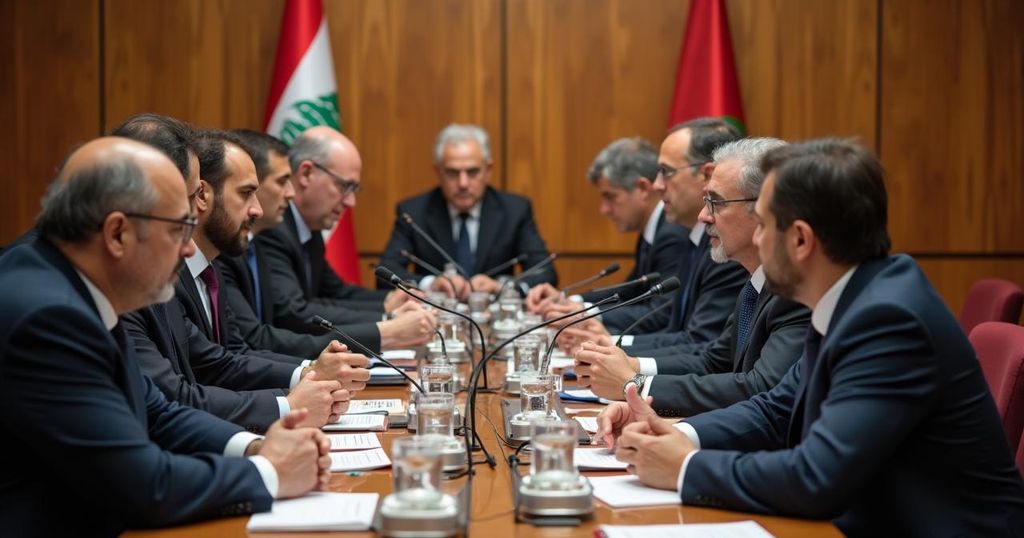U.S. Eyes Opportunity to Resolve Political Deadlock in Lebanon
The United States is exploring new diplomatic efforts to resolve Lebanon’s political deadlock, focusing on electing a new president to bring stability and mitigate Hezbollah’s influence, following significant military setbacks against the group. Secretary of State Antony Blinken emphasizes the importance of Lebanese sovereignty in determining their leadership and future, and he is advocating for the implementation of relevant UN resolutions to promote peace along the Israel-Lebanon border.
The United States is perceiving a potential opportunity to address the political impasse in Lebanon, particularly following significant setbacks for Hezbollah due to Israeli military actions. Secretary of State Antony Blinken has engaged with officials from Saudi Arabia, Qatar, and France regarding strategies to resolve the deadlock, emphasizing the need for the election of a new Lebanese president as a pivotal step towards reducing tensions in the region. Blinken articulated the importance of ending the two-year presidential vacancy, stating, “It’s clear that the people of Lebanon have an interest, a strong interest, in the state asserting itself and taking responsibility for the country and its future.” He underscored that Lebanon’s destiny must be determined by its citizens, free from external influences. Despite years of unsuccessful attempts to untangle Lebanon’s sectarian power-sharing system, recent political developments may signal a shift. U.S. officials, while acknowledging skepticism about eradicating Hezbollah’s entrenched influence, are cautiously optimistic about potential progress following the group’s recent military challenges. Blinken also noted discussions about implementing UN Security Council Resolution 1701, which seeks to restore order along the Israel-Lebanon border, thereby fostering conditions for civilians to safely return to their homes. The international community, particularly Lebanon’s parliamentarians, is called upon to elect a competent and reform-oriented president to navigate the country through its current crises.
Lebanon has been ensnared in political deadlock, primarily attributed to its sectarian power-sharing system. This impasse has persisted for two years since former President Michel Aoun’s term ended in October 2022, resulting in a leadership vacuum that exacerbates the nation’s dire economic situation, with a large portion of the population now living in poverty. Hezbollah holds significant political power in Lebanon despite being classified as a terrorist organization by the U.S. and others. The recent degradation of Hezbollah’s leadership due to Israeli military operations has led to speculation about the possibility of a renewed push for political transition, particularly the much-needed election of a new president.
In conclusion, the United States sees a potential opening to facilitate a resolution to Lebanon’s prolonged political stalemate, driven by recent military developments affecting Hezbollah. Secretary Blinken’s diplomatic engagements highlight the urgency of electing a new president and revitalizing Lebanon’s state institutions to address the pressing needs of its citizens while ensuring that such decisions remain sovereign to Lebanon itself. The international community’s support, particularly concerning the implementation of UN Security Council resolutions, may prove crucial in stabilizing the region.
Original Source: apnews.com




Post Comment